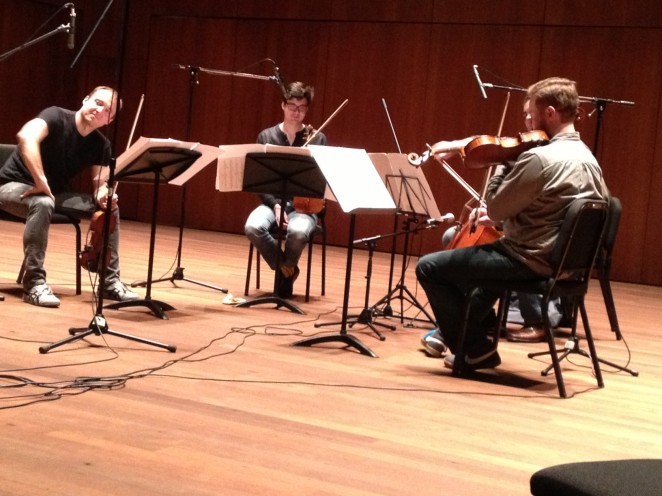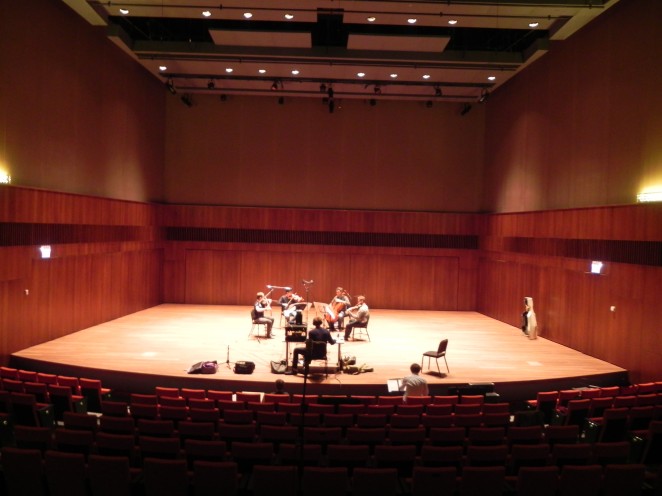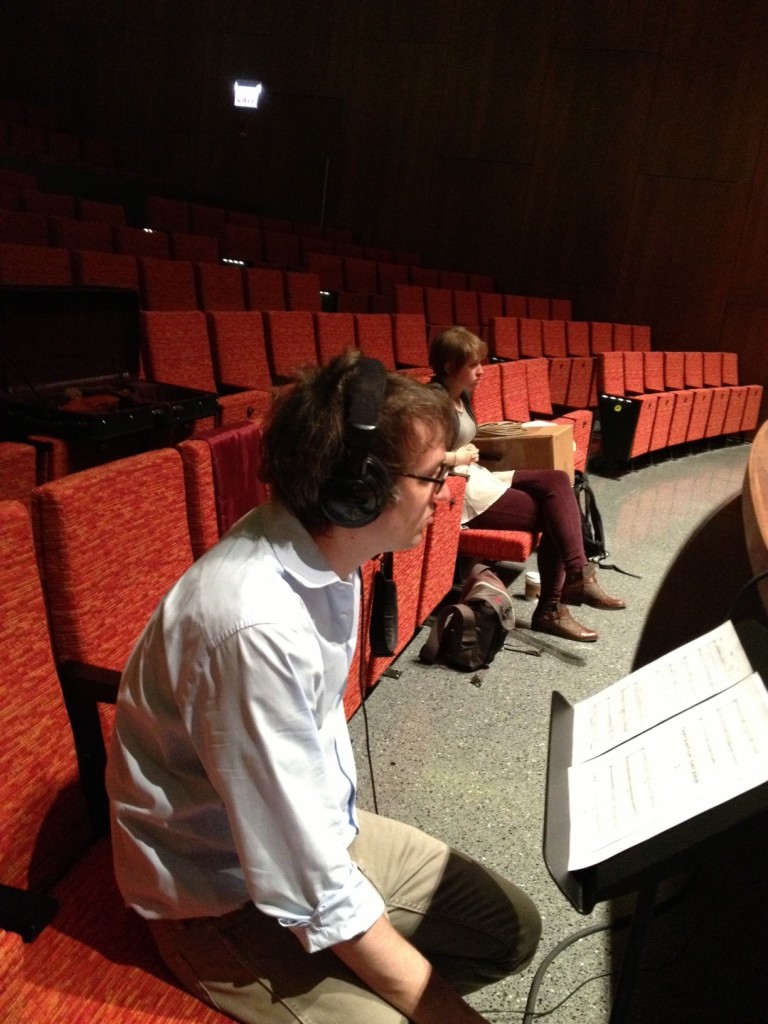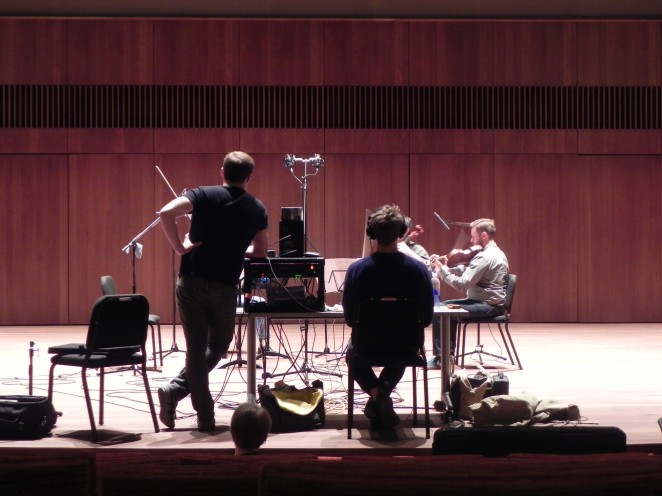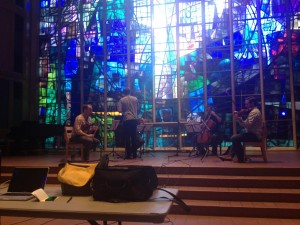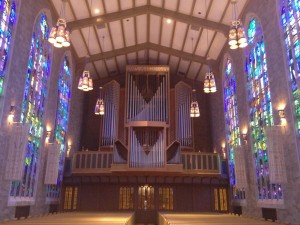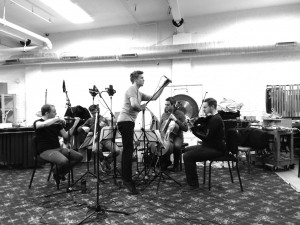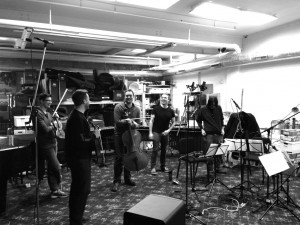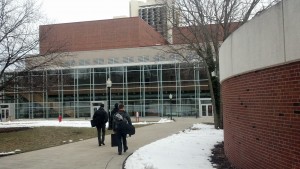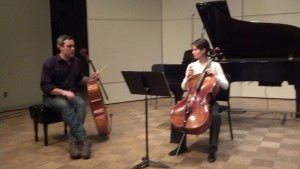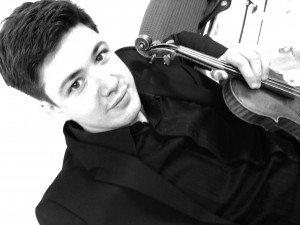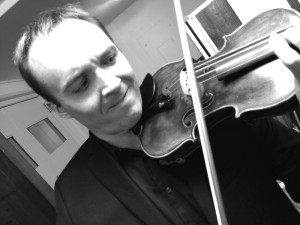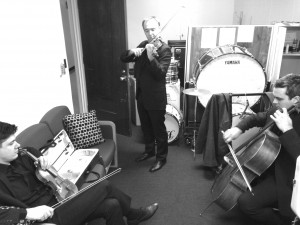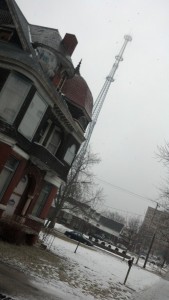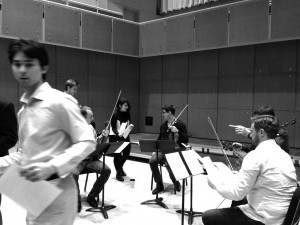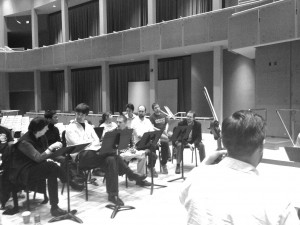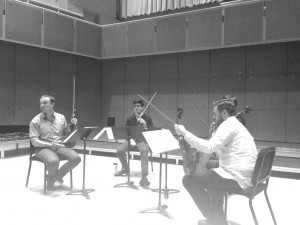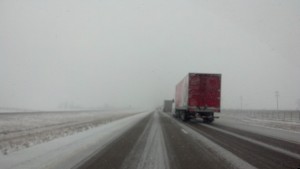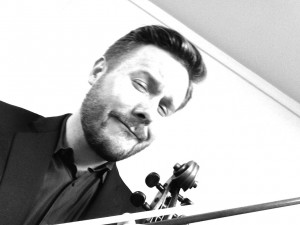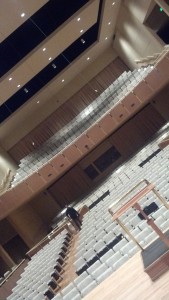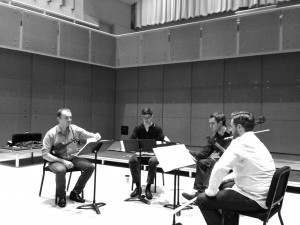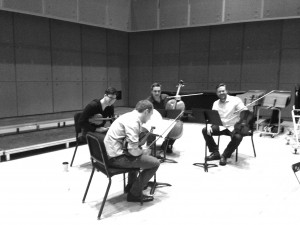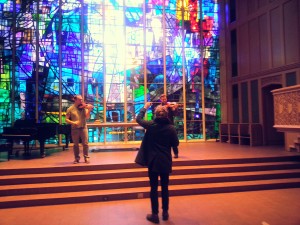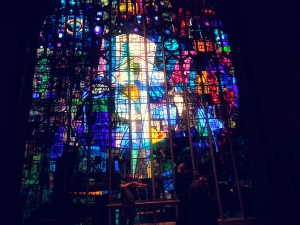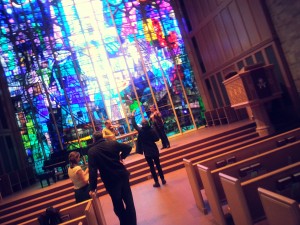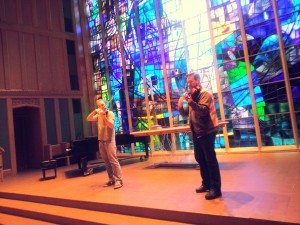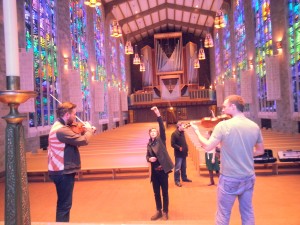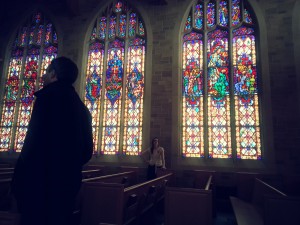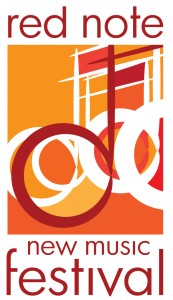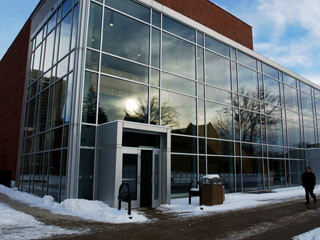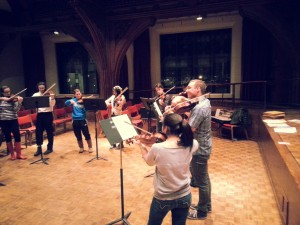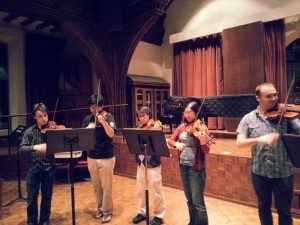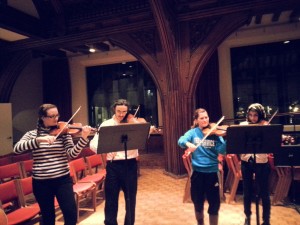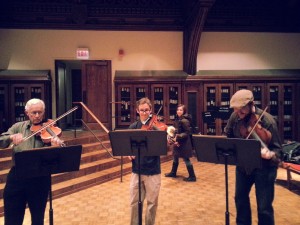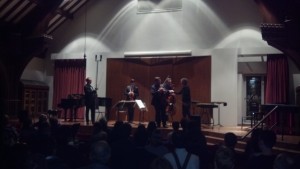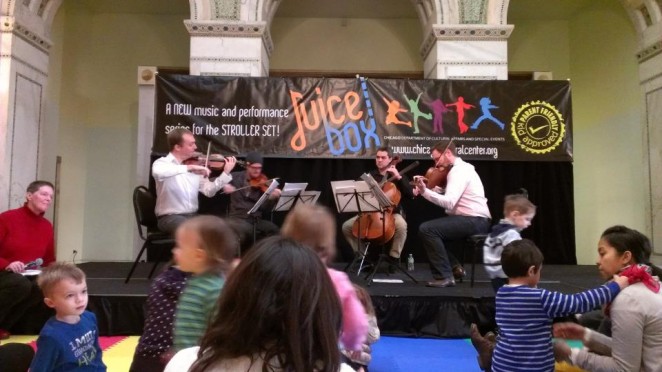Hark! I bring you tidings of great joy! Spektral Quartet and Parlour Tapes+ have all six pieces on Spektral's debut album on tape!
Our final session.
I'm so excited about this record, and couldn't be prouder to have recorded such challenging, intelligent and expressive music for our first disc. Here are some things I can tell you:
-Recording Ben Hjertmann's piece on Friday and Eliza Brown's on Saturday was one of the biggest challenges this quartet has ever faced. Both pieces are incredibly difficult individually and for the ensemble, and in drastically different ways: the wild virtuosity and rapid-fire changes of Ben's piece versus the intricately interwoven web of microtonal harmony, pulsating rhythms and subtle timbres in Eliza's work.
-The record is titled "Chambers", a nod to Marcos Balter's piece on the album, the unique sound world of each piece, and that thing the four of us do every day.
-I am a danger to my instrument...after breaking my good violin during our first collaboration with Julien Labro (that video has me playing on a second-rate loaner after I ripped the top off my fiddle with a bow whip), I've proved once again "why we can't have nice things". Luckily, I was using my secondary violin to play the guitar-picking sections of Ben Hjertmann's piece in our session on Friday. Check out the sound of me knocking the bridge off my instrument with a big hit behind the bridge:
Also, things get a little loopy when we're hunkering down in the studio. Our coping mechanism seems to be extreme wackiness...thanks to Jenna Lyle for taking notes on our silliness during Friday's session:
“And THAT’s why they call him ol’ One Take Armbrust!”-Austin
“What do we want?? Time travel!! When do we want it?? That's irrelevant!!”-Aurelien
“Are there any shorter chairs? I can’t hunch over the way I like with these.” -Austin
“Bar 60 was the best we’ve ever done it that time.”-Russ
“Yeah, seriously. Speed it up, do a little pitch correction in post... It’ll be great.”-Doyle
“Why Guitar Players Have Frets: Part 800”-Austin
“Ya know, it should be more like ‘da-doo-dat-doo-dat--dat’”-Russ
“Well that was definitely tragic.”-Russ
“Ca-Kaww!”-Austin/Aurelien
“There’s the performing phase, and there’s the judging phase. And when you go too long....one takes over...How about 5. Take 5?” -Russ


